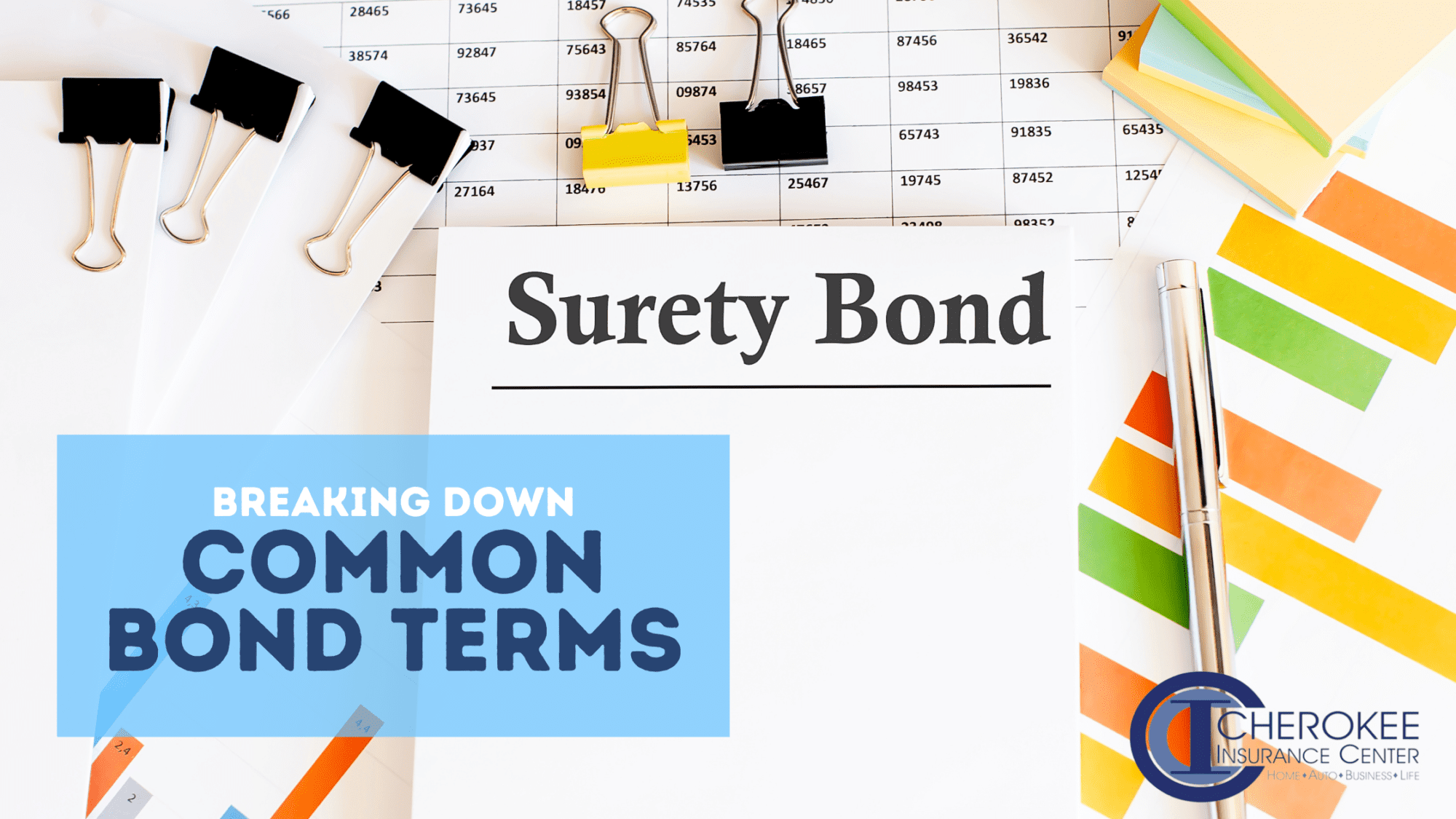
When individuals and companies start working with bonds, a lot of carriers assume average individuals or companies know what the common bond terms are. Unfortunately, that’s not the case. When working with bonds there are some common terms that are used on an everyday basis. We are breaking down common bond terms below to help you when working with bonds.
Bond Terms Defined
Obligee
This is the party that requires the Principal to provide the bond. The Obligee is protected from loss by the Surety if the Principal fails to fulfill their obligations.
Principal
This is the person or business who is required to be bonded by the Obligee. The Principal is obligated to the Obligee to pay and/or perform according to a law, ordinance, rule, regulation, contract, license or permit.
Surety
A surety is the insurance company that issues the bond for the Principal. In doing so, they are guaranteeing the obligations of the Principal.
Indemnify
To indemnify means to make whole. Under common law, the surety company has the right to be indemnified by the principal in the event of a loss. The General Indemnity Agreement (GIA) carries out that right by stating that if the surety suffers a loss while providing a bond to the principal, the principal is obligated to make the surety “whole” by reimbursing any losses and expenses.
Surety Bond
A Surety Bond is an unusual form of insurance in that one person or organization pays for it, while another receives the benefit. The third party (surety company) guarantees to the second party (obligee) the successful performance of the first party (principal). The surety company guarantees that the obligations of the principal to the obligee will be performed in accordance with a contract, statute, or regulations.
Contract Bonds
Contract Bonds are required when an individual or company has a contractual obligation to perform work or provide services to another entity. The Contract Bond guarantees that the individual or company will fulfill the terms of the contract. Some other various types of contract bonds are Bid Bonds, Performance and Payment Bonds, Supply Bonds, Subdivision/Site Improvement Bonds and Warranty Bonds.
Court Bond
A Court Bond guarantees that an individual or organization will fulfill their responsibilities as ordered by a court. There are two types of court bonds – Fiduciary and Judicial Bonds.
Fiduciary Bond
A fiduciary bond essentially serves as insurance to protect beneficiaries, heirs, and creditors when a fiduciary (trustee; someone who acts on the behalf of another) fails to perform honestly or competently.
Judicial Bond
A judicial bond is another type of court bond that guarantees court costs are secured. Civil court proceedings require judicial bonds when someone involved in a lawsuit seeks a special right or remedy before of a final court decision.
Fidelity Bond
These indemnify an employer against financial loss due to dishonesty of an employee or protect a business from certain types of damage caused by employees. There are several types of fidelity bonds, each providing specific coverage – Employee Dishonesty, Business Service, and Commercial Crime Bonds.
License and Permit Bond
These include a wide variety of bonds required by various government agencies throughout the country in connection with regulated professions. These bonds provide indemnification for loss or damage resulting from a license or permit holder’s compliance with a law, ordinance, or regulations.
Bonds are sometimes a necessity in business. Understanding the names and jargon are helpful when having to work with bonds as an individual or company.
To learn more about bonds, visit our website or give us a call at 770-720-1314. We would be happy to assist in guaranteeing you get the correct bond for you or your company.
